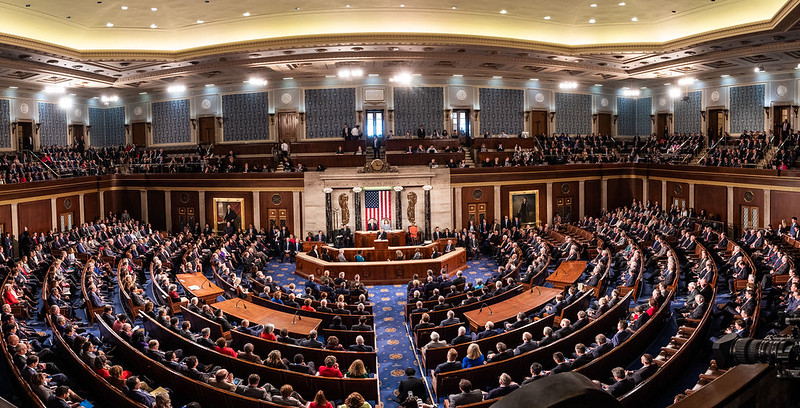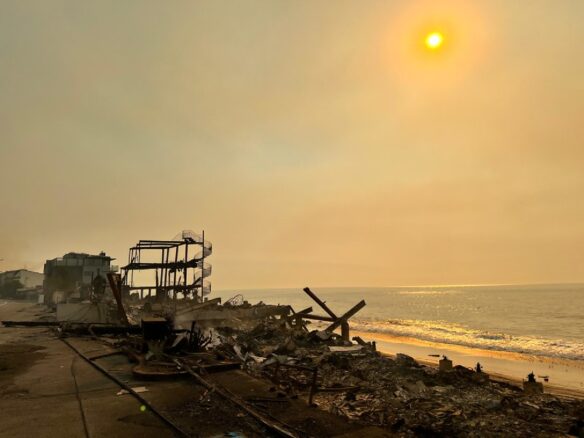Neil deGrasse Tyson, an American astrophysicist, author, and science communicator, made a wonderful statement some time ago, that is worth sharing – “The good thing about science is that it’s true, whether or not you believe it”. Science is really not an option. Whether biology, chemistry, physics, oceanography, geology or astronomy, scientists in these disciplines over centuries of research, conducting experiments, collecting evidence, and testing and examining their ideas have gradually developed an understanding of how the Earth and its life works. And much of our everyday lives depends on the application of that science.
Another quote that I believe is particularly appropriate today is from Daniel Patrick Moynihan, a former professor at both Princeton and Syracuse universities, a four-term U.S. Senator from New York, ambassador to India, member of the cabinets of three presidents, John F. Kennedy, Lyndon Johnson and Richard Nixon, and who was awarded the Presidential Medal of Freedom – “Everyone is entitled to his own opinion, but not to his own facts.”
We have known about the heat trapping nature of carbon dioxide since the mid-1800s. An early American scientist, Eunice Foote, first reported on this property in 1856 from her laboratory experiments. In 1859, John Tyndall, an Irish physicist, more fully explained how gases, including carbon dioxide and water vapor, can absorb heat. Forty years later in 1896, Svante Arrhenius, a Nobel Prize winning Swedish chemist, determined the extent to which atmospheric carbon dioxide from fossil fuel burning was large enough to cause global warming.
So we have known about greenhouse gases and their impacts on the Earth’s temperature and climate for well over 125 years. This is not a new or controversial idea. It’s pretty straightforward physical chemistry. Carbon dioxide molecules don’t have political affiliations – they all trap heat.
Since the beginning of the industrial revolution in the mid-1800s, humans have pumped about 1.6 trillion tons of carbon dioxide into the Earth’s atmosphere, primarily from burning fossil fuels and making cement. This has raised the carbon dioxide concentration in the atmosphere from about 280 parts per million to 420 parts per million, a 50% increase. Over half of that has been in the last 30 years. In 2019, human activities emitted 43.1 billion more tons of carbon dioxide, the highest year ever. While the USA only has five percent of the global population, we are responsible for 28% of the total carbon dioxide now in the atmosphere.
This is not a good news story. The more coal, oil and gas we burn, the more carbon dioxide goes into the atmosphere, and the more the Earth warms and the more climate changes. This is basic science. Has the Earth warmed naturally in the past? Without question it has due to long-term, cyclical, but predictable changes in the distance to the source of our heat, the Sun. These changes, however, take place over tens of thousands of years, not decades like we are experiencing today.
We are surrounded by the increasing effects of a warming planet, and it’s not just that the temperature is a few degrees warmer. Record high temperatures are being documented around the Earth along with heat related fatalities. Extreme heat is the biggest weather-related killer in the nation and is a particular threat to those who are elderly, unhoused or who have preexisting health conditions.
The last eight years have been the warmest on record since we begin tracking temperature in 1880. These warm years have been accompanied by a continuing record drought in the west with water shortages and wildland fires. Lake Powell and Lake Mead on the Colorado River provide water that seven states and Mexico depend upon but are at the lowest levels ever recorded. Those states, including California, cannot get the water they have become reliant on. This is a very serious problem with no solution in sight.
Africa is facing unprecedented drought and shortages of water and food. Pakistan just suffered through the deadliest floods on record. Hurricanes are increasing in frequency and intensity along the Atlantic coast. Eighteen of the 20 largest wildland fires in California history have occurred since 2000, including the CZU Lightning Complex Fire that ravaged San Mateo and Santa Cruz County just two years ago.
The science is clear and the impacts are equally clear. I want to close this article with a transition into those people who govern us in Washington and who we need to depend on to deal with the climate crisis we are experiencing and that will affect us and our children and their children for decades to come.
Just over half of the Republicans in the Senate and House who will take the oath of office in early January have expressed views in opposition to what the overwhelming majority of scientists are reporting on what is happening with the Earth’s climate. In the Senate, there are 39 of them, including four who have been elected since 2020. In the House, there are 110 of them, including 19 newly elected representatives. Six of these are from California where climate-related impacts are well known. We can expect them to do everything they can in the 118th Congress to undermine any efforts to address the climate crisis. The denial of science has major impacts on all of us.
A version of this column was also published in the Santa Cruz Sentinel on January 1, 2023.









